According to the nature of your project and your localization team‘s resources, you can choose to translate strings with POEditor using multiple translation options.
Keep on reading to find out what these translation options are and how they work, and make an informed decision when designing your localization strategy.
Assigning contributors to specific languages
Whether your company has in-house translators, you work with a translation agency or you have some friends willing to help with the translation, this option is for you. You will know exactly who will be translating the project into what language and will be able to benefit from all the project tracking tools POEditor has to offer.
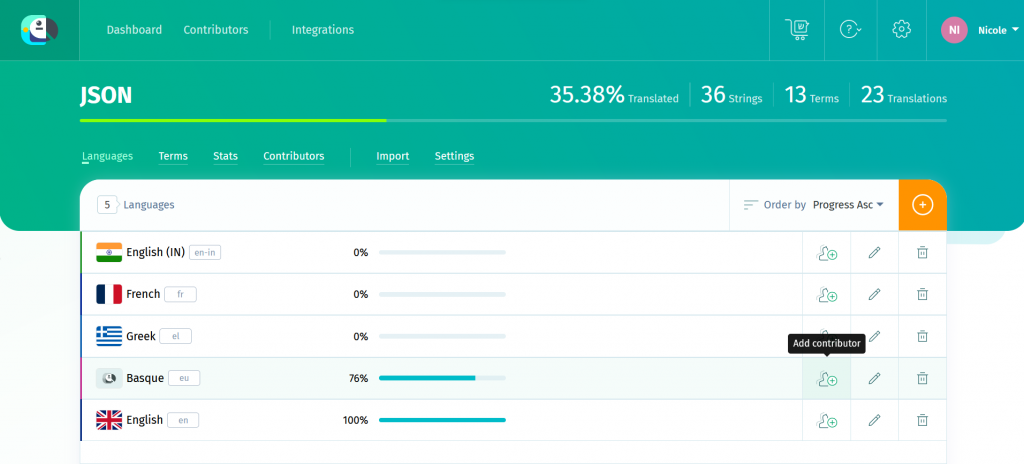
Assigning a contributor to a language in a POEditor project is easy. There’s an Add contributor button in the Project page for each project language, and one in each Language page. Click on one of these buttons and type in the name and email of the person you want to assign to the language. They will receive an invitation to join your localization project, which will allow them to start translating right away.
You can add contributors to a localization project via API also.
Assigned contributors are able to use the collaborative online translation editor, which updates in real-time. Find out more about these the online translation editor’s features here.
Human translation orders
If your project needs to be localized into a language quickly and professionally, and you don’t have a translator to assign to your project, the human translation orders module is what you’re looking for.
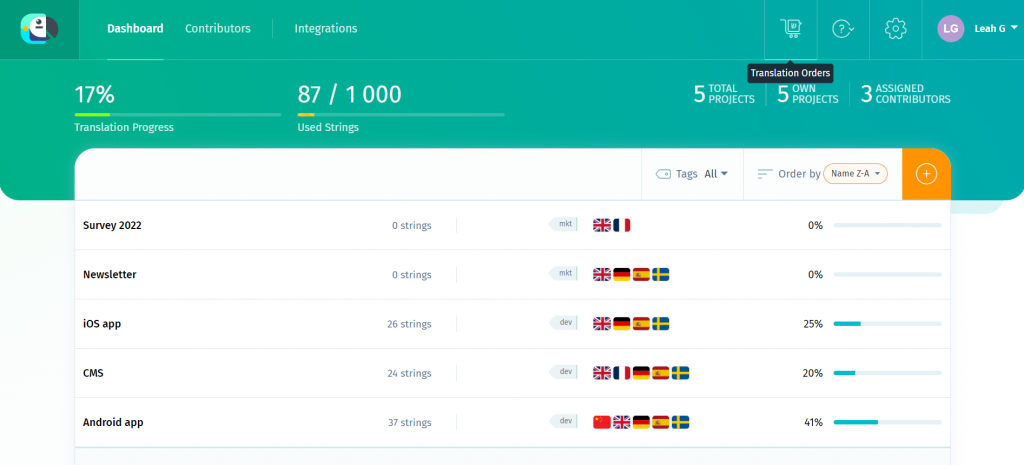
At POEditor, we offer an integrated translation order system, which allows you to seamlessly send strings to professional human translators.
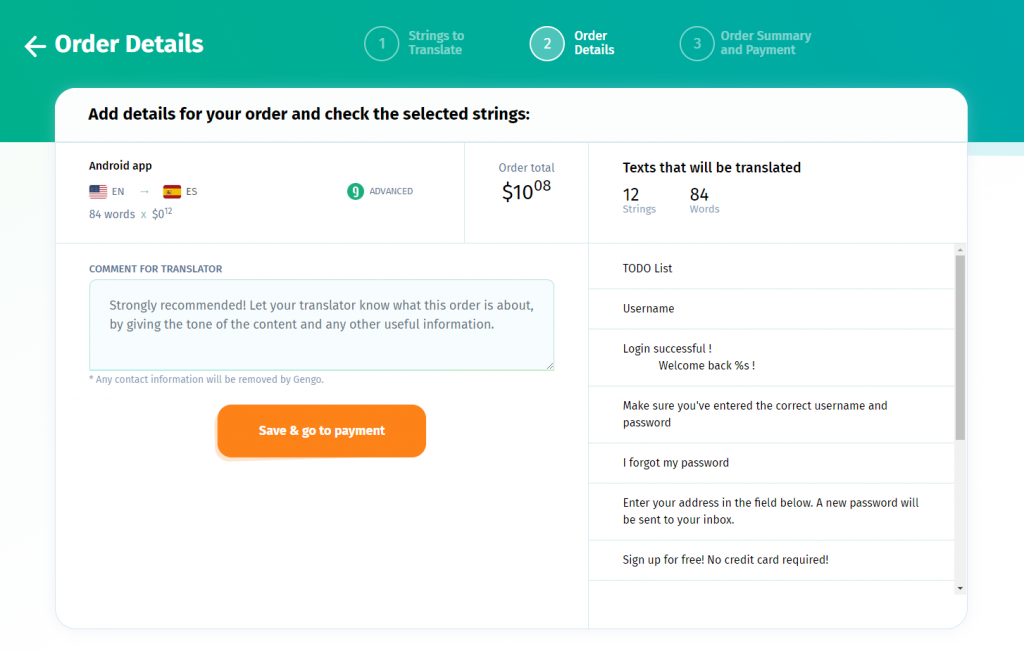
Once the translations are completed, the localized strings are sent back to your POEditor account and you can import them to your project with a few clicks. No need to send localization files back and forth, or for any external accounts/keys/credits.
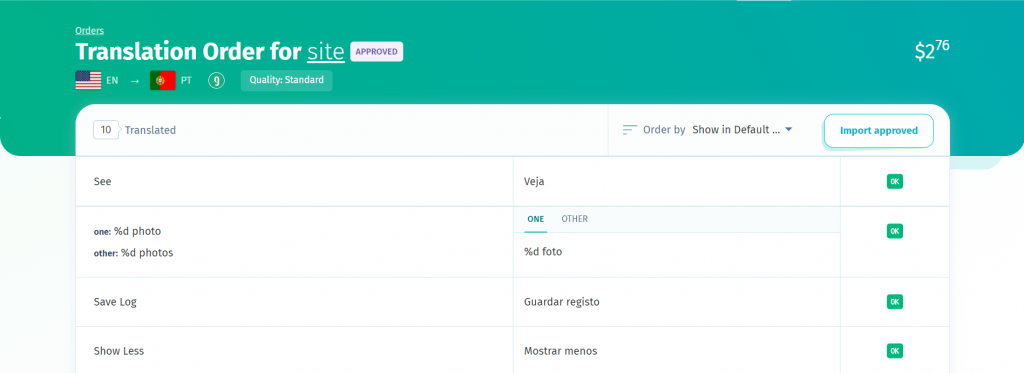
Sounds easy? It is.
Crowdsourced translation (community translation)
Have an active community, who you would trust with localizing your project? That’s where public projects come in.
After you make your localization project public its Settings, you can share a link to its public join page, where anyone can volunteer to translate into one or more languages.
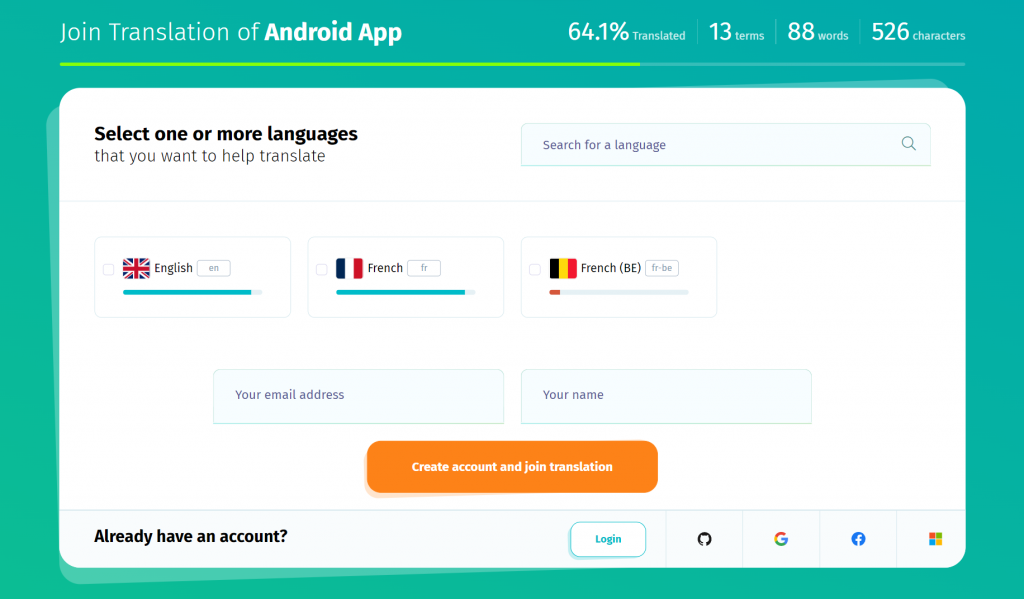
There are ways to control the access to your crowdsourced localization project. For new contributors, check the options available in Advanced Settings. For current contributors, see the Contributors page. More information about public projects is available here.
Machine Translation
For the translation of short, simple strings, you can always opt to use machine translation engines. POEditor has integrated multiple vendors for automatic translation, allowing you to seamlessly get machine translations for all the languages in your project, with just a few clicks.
To access the Automatic Translation feature, click the button with the same name in any Language page.
As handy as it can be in some cases, and as much as it may have advanced over the years, we would advise you to use human translation for production environments, or to use it in conjunction with post-editing, because there are limitations to machine translation.